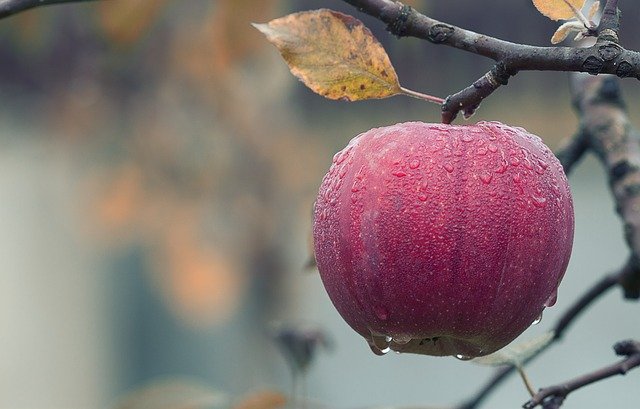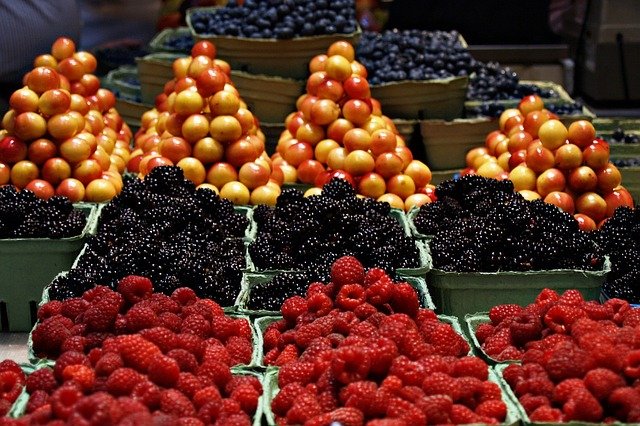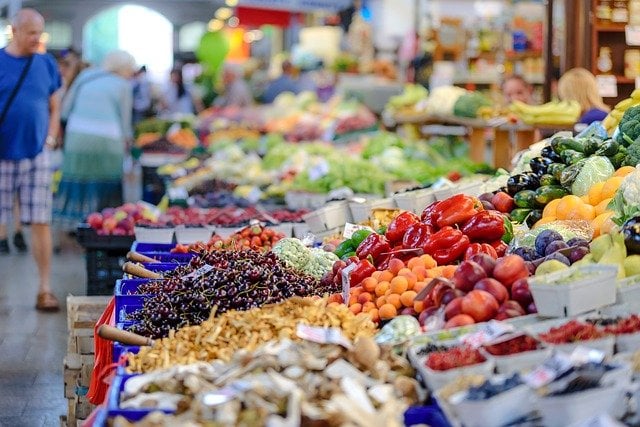The Australian organic food industry has been booming in recent years, clocking up an annual growth rate of 20-30 percent. It is believed that more than six out of ten Aussie households buy some form of organic foods when they go shopping for groceries. This includes fruits, nuts, packaged foods, vegetables, and animal products.

If this has left you wondering what are organic foods and whether you should be hopping onto the organic bandwagon, read on to find out more.
What are organic foods?
Any food that is grown with organic methods of farming is an organic food. This is not limited to only plant based foods but includes all forms of animal produce as well.
To qualify as organic foods, plant-based ingredients should be grown without relying on conventional farming practices that use synthetic pesticides, fertilizers or GMO seeds. Find out more about moving to a plant-based diet.
For organic animal products, the animals must be treated humanely (which means not keeping them in cages or feeding them in lots), and must be fed a diet free of chemicals, hormones or antibiotics.
Both forms of organic food production focus on the need to protect the environment and work in conjunction with the ecosystem using a number of eco-friendly methods.
Which foods fall under the organic food definitions?
Different countries have different standards for organic food definitions, so what are organic foods? In general, a food is defined as organic when it fulfills the following:
- Must be grown without synthetic pesticides or raw sewage
- Does not make use of processed fertilizers to augment yield
- Is not produced using genetically modified organisms and products
- In the case of meat and animal products, it should come from animals not loaded up on hormones, antibiotics and other drugs

Here are the most popular types of food that Australia grows organically:
- Fruits
- Legumes
- Meat and meat products
- Eggs
- Processed foods
- Vegetables
- Grains
- Dairy
- Honey
What are the benefits of organic food?
When debating what are organic foods and why you should move to a more organic diet, the biggest argument is for the environment. However organic foods offer a number of other advantages over conventionally grown produce:
- It is healthier because it tends to be grown without pesticides, antibiotics, additives and chemicals
- It is said that organic foods have a higher nutrition content and to be full of essential vitamins, minerals and omega-3 fatty acids
- It is a more sustainable practice in the long run because organic farming rejects harmful farming practices that damage the land
- It reduces the harm caused to insects, birds and butterflies due to the use of harmful chemicals
- It tends to taste better because it does not make use of preservatives and is often fresher
- Animals that are raised for meat and animal products are treated humanely and not fed antibiotics, hormones and other chemicals
- All organic food is grown without the use of genetically modified organisms and products which are known to cause several serious diseases and health issues

What are the disadvantages of organic foods?
Organic foods are a better choice for the long run, both for individual health and for the environment. However the industry must consider what are organic foods problems if it is to become a mainstream option. Here are some of the drawbacks:
- Organic food can cost considerably more than inorganically produced food. In some countries, the cost can be up to 70% more, which makes it a less convenient option.
- While it is considered good for the environment, organic farming requires larger parcels of land to be used. This can be the detrimental to the environment.
- Organic meat is free of chemicals, but may have the same or even more dangerous pathogens in it than conventional produce.
- It is not completely free from pesticides, and this study highlights how even permitted pesticides may be detrimental to health
How can I get organic but affordable food?
Organic food can be more expensive but there are some ways to hack this system. It is usually more expensive because the yields are lower and it is not as popular as traditional farming yet.
When it comes to buying organic at a reasonable price, you must consider the following – What are organic foods that you can access easily? Where does it come from? Organic food that is not local to your area costs more because of the added price of storage and shipping.
Consider these hacks when it comes to purchasing organic food:
- Purchase seasonal fruit and vegetable that are local to your region. It costs a lot more to grow produce under manmade conditions, and that cost is passed on to the customer. In addition, if something is in season, you know it is fresh and full of nutrition.
- Buy at local farmers’ markets and look for farmers selling organic produce.
- Consider becoming a member of an organic food co-op so that you can enjoy lower prices either through subscriptions or annual fees.
- Get used to using multiple sources to buy your produce (online, supermarkets, farmers’ market) so that you can pick up the best options at the best prices.
- Become a part of a community supported agriculture (CSA) farm that allows you to buy produce in bulk straight from the farmer

Choosing organic foods on a budget
There are some foods that contain the highest levels of pesticides because they are delicate to grow and preserve. If you have a limited budget for organic food, try to buy the organic version of these fruits and veggies so that you get the best health benefits.
- Peaches
- Celery
- Grapes
- Kale
- Spinach
- Apples
- Cucumbers
- Potatoes
- Strawberries
There are also some fruits and veggies that do not require as much pesticide. You can afford to buy these from traditionally farmed sources if you must, because they will be more affordable.
- Papaya
- Avocado
- Kiwi
- Onions
- Mushrooms
- Sweet potato
- Cabbage
- Sweet peas
- Pineapple
- Eggplant
- Mango
The myths around organic farming
Because it is a relatively new field, you’ve probably heard some of the misconceptions around organic farming. If you’re wondering what are organic foods and how much is true, here are some of the most common myths:
Organic produce is completely devoid of all chemicals:
This is not always true. The land on which organic food is grown may contain chemical residue. This could raise the toxin levels of the produce even if it is grown without chemicals. In addition, there are certain natural pesticides that are permitted in organic farming, which adds to the level of chemicals in the food.
Organic food is more nutritious:
This has been the subject of much debate. One of the biggest selling points of organic food is that it is healthier than conventional food items. However a study conducted by Stanford Medicine proved that there were no substantial nutritional benefits to organic food. It analyzed 237 samples of organic and conventional foods like eggs, fruits, grains, vegetables and milk for nutrient, bacterial and toxin level and found practically no difference.
Organic food is healthier:
This is true when applied correctly, but it can be quite misleading. It’s easy to think that any processed food with an Organic label is healthy, but anything packaged or processed is not as healthy as freshly cooked food. Snacks, baked goods and desserts made using natural produce may contain a lot of sugar, fat and salt and should be counted as junk food.
Is organic food the same as local food?
No. organic is not always the same as local. Anything that is grown within your community, state, region, or country could be classified as local. But it may not have been grown in accordance with organic food practices.

To meet the definition of what are organic foods, there are specific standards that must be met. This could be grown anywhere, including outside your country or region.
Local produce has the following benefits:
- It supports economic growth for the community around you.
- When you buy food from far away, you pay a premium for the transportation and storage costs of that ingredient. By choosing local, your food makes the journey from farm to your table in a much shorter time.
- Local food does not need to be pumped full of preservatives so that it can withstand long journeys and still remain fresh. This means you get easy access to fresh, ripe, flavourful food.
To conclude….
While the jury is still out on the nutritional claims of organic foods, it is clear that there are less pesticides and chemicals in it. Most people who switch will agree that the flavour and texture of organically farmed produce is far superior to traditionally farmed produce.
As consumers become more aware of what they are eating, the world spends more than a trillion dollars on organic foods every year. If you’re buying for taste and quality, organic is a great option for your health and the environment.
If you’re just starting off, planning to eat healthy can be confusing. You can begin by reading our beginner’s guide to healthy eating. If you would like to talk to an expert about eating healthy, Avaana can help you find online nutrition coaching.



